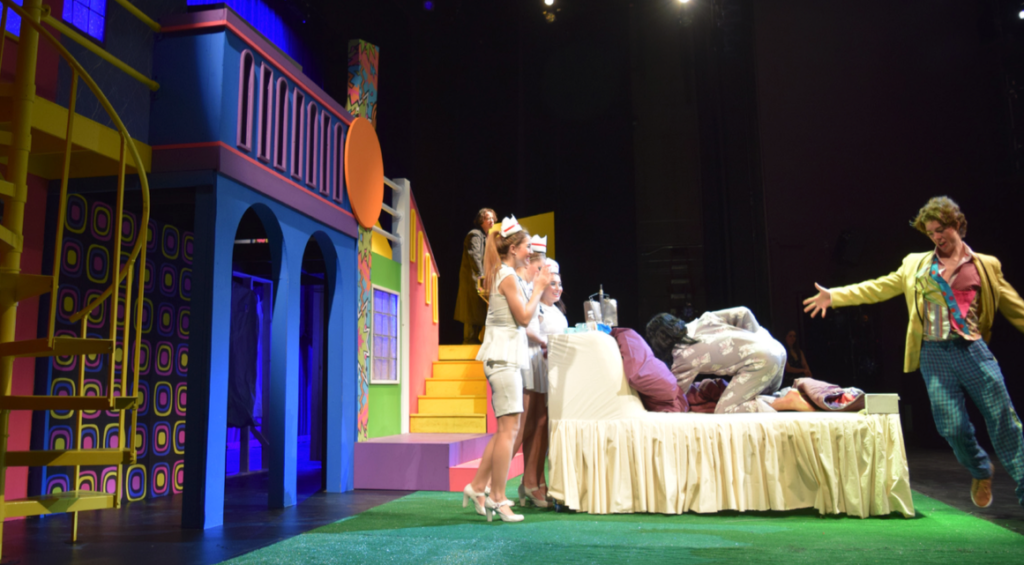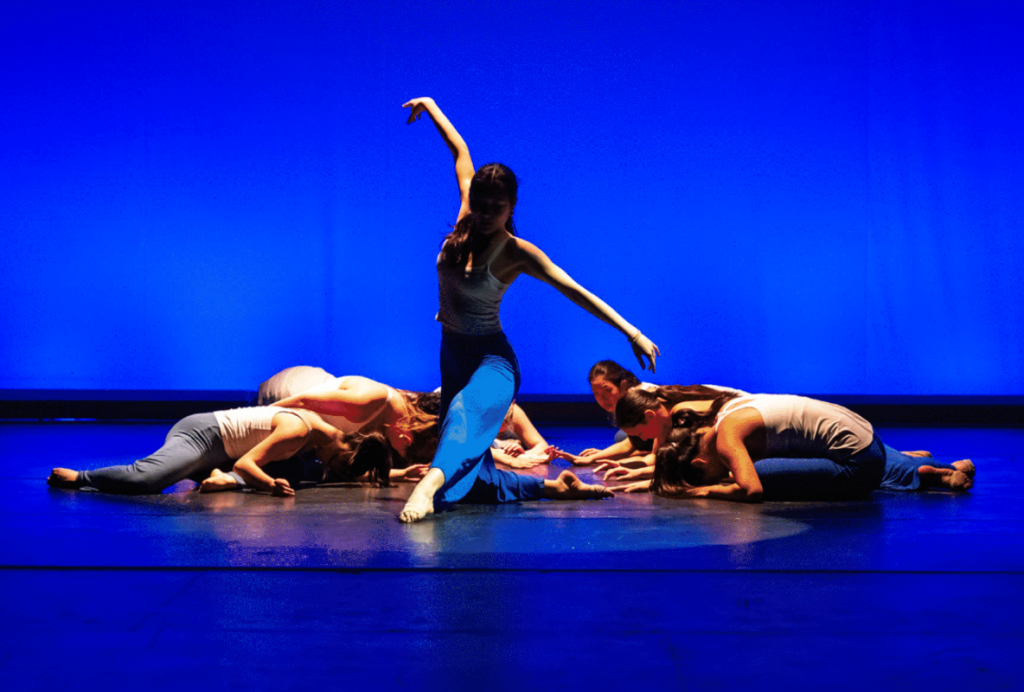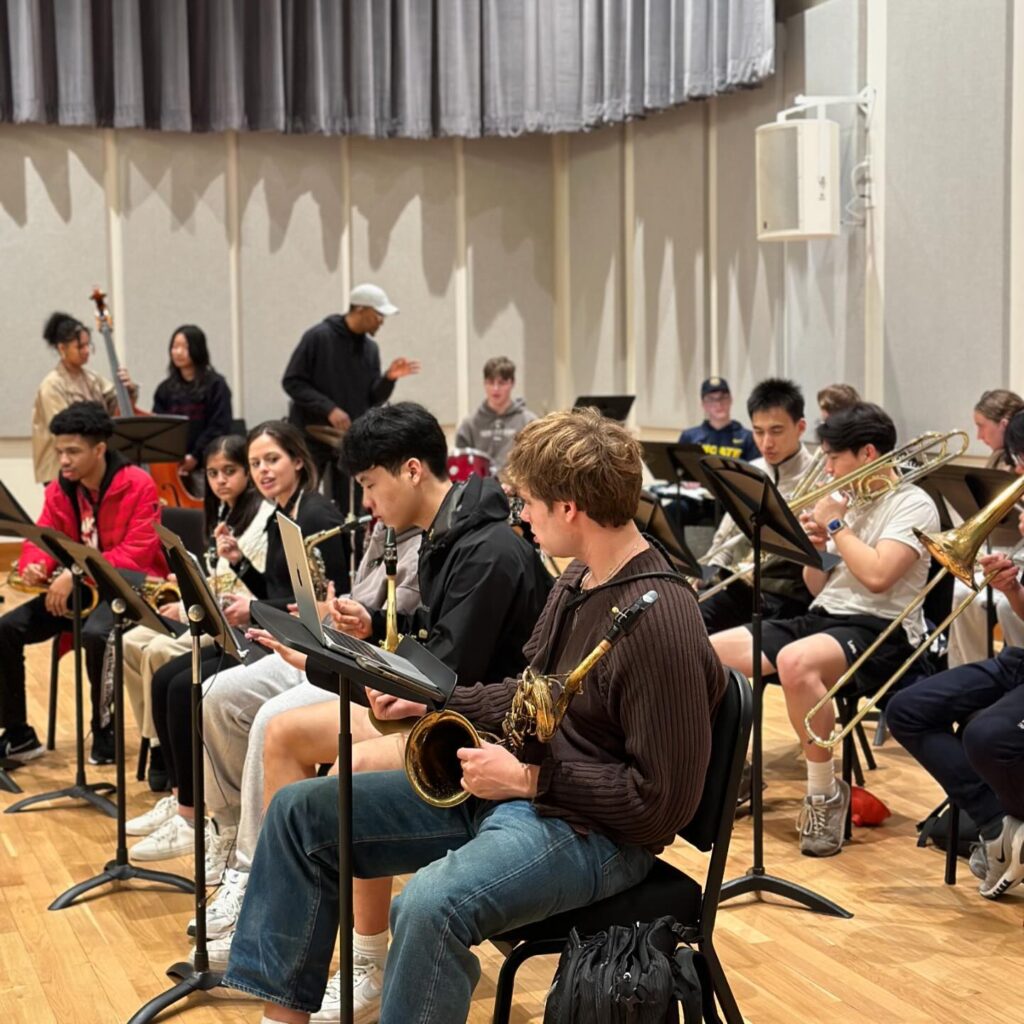
Cast members of The Love of Three Oranges and The Green Bird perform in a dress rehearsal Monday, prepping for audiences coming this weekend.
Choate’s current theatrical director, Ms. Deighna DeRiu, has taken on a challenge unseen before in the realm of the School’s winter term plays. Instead of the traditional long play, DeRiu and a large cast are putting on two.
The two plays are The Love of Three Oranges, and The Green Bird. They run February 16 through 18 at 7:30 p.m. on the main stage. Playwright Ms. Hilary DiPiano adapted both plays from original works written by Italian playwright Carlo Gozzi towards the end of the the Commedia dell’Arte movement in Venice, Italy.
The former focuses on a young Prince, Tartaglia, played by Will Robertson ’20, who is cursed and miserable and whose throne is being sought by more that one evil character. When his family manages to overcome one curse, the evil witch bestows him with another, and sets him off on a quest to find three oranges, which are not quite what they seem.
The latter is a connecting play that occurs eighteen years after Prince Tartaglia’s fairy tale ending, where life for him has gone very awry — his kingdom is a mess, his queen is buried alive, and he is lost on another quest. With no one around to set things right, the play turns to the mysterious twins Renzo and Barbarina, and the Green Bird, to lift all the curses and restore happiness.
Lead roles this year consist of a mix of old and new actors, including Eamonn Welliver ’18, Chris Overmeer ’17, Graysen Airth ’18, Avery Lutter ’18, Klaudia Horvath-Diano ’17, and Robertson. Putting on two plays, in DeRiu’s view, was done so that people could have a chance to fall in love with theater like she did as a child. On her choice of plays, she said, “I used to have an Italian book of Fairy Tales when I was a child, and both of the stories were in the book. I always loved both stories, on their own, and I loved that one was also a continuation of the other. So, when I was considering doing The Love of Three Oranges, I remembered that The Green Bird was also a play. When I found the script, it was adapted by the same playwright, so I just felt like it was a perfect choice to finish out the story.”
Students participating in the play have found struggles on their way to successful acting, as expected due to the recent addition. Joseph Coyne ’19 stated, “Having two plays and thus having two different characters has been difficult because you have to spend a lot more time developing two characters instead of just one.”
However, for DeRiu, managing two plays hasn’t been the challenge that it has been to the students. “Because they are companion pieces, and The Green Bird is one act, it doesn’t really present many challenges with the rehearsal process,” said DeRiu, “In a way, it helps. Because The Green Bird has many of the same characters as Oranges, but takes place so many years later, I was able to cast it with different actors, which helps with unifying character work, scheduling rehearsals, and distributing the responsibilities of the actors. And I got to have a big, diverse cast that has worked very hard to create a vibrant ensemble.” This change has thus added a new layer of depth to the production.



